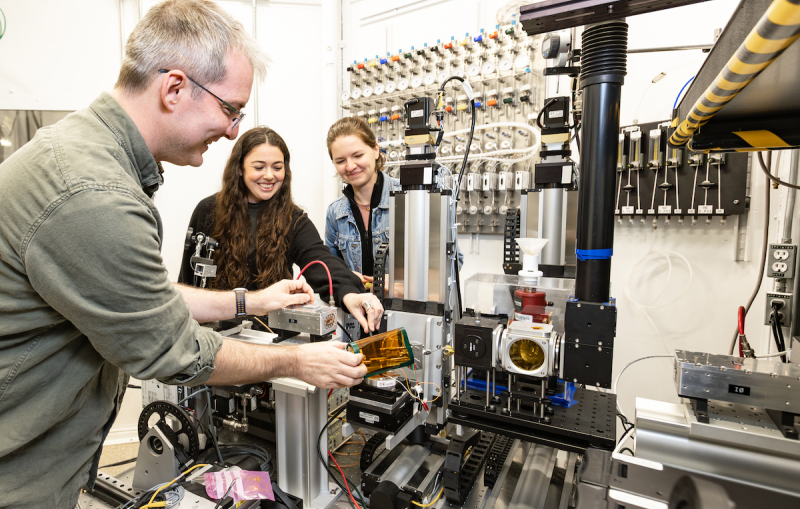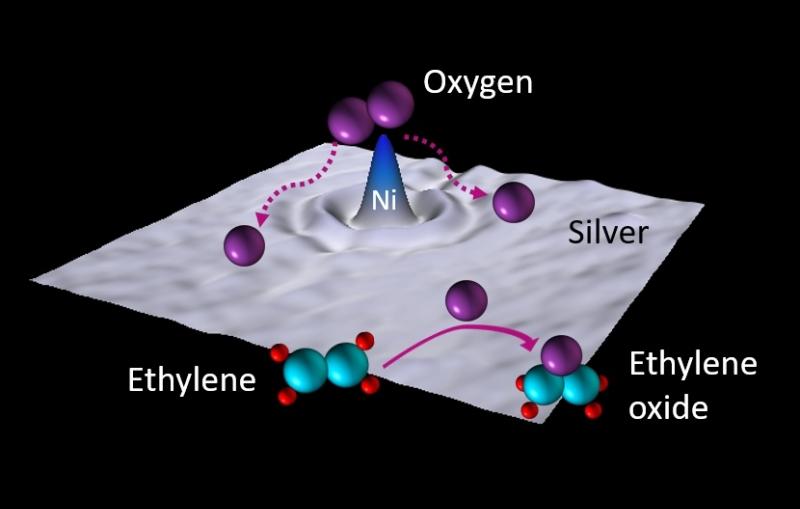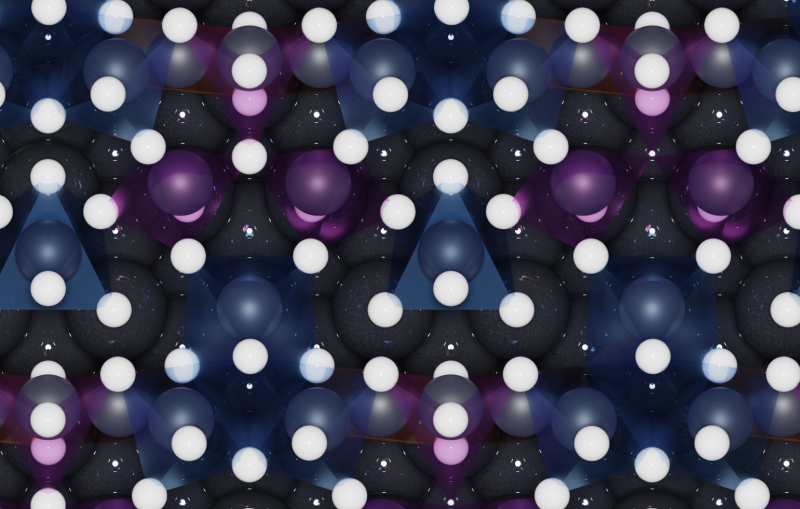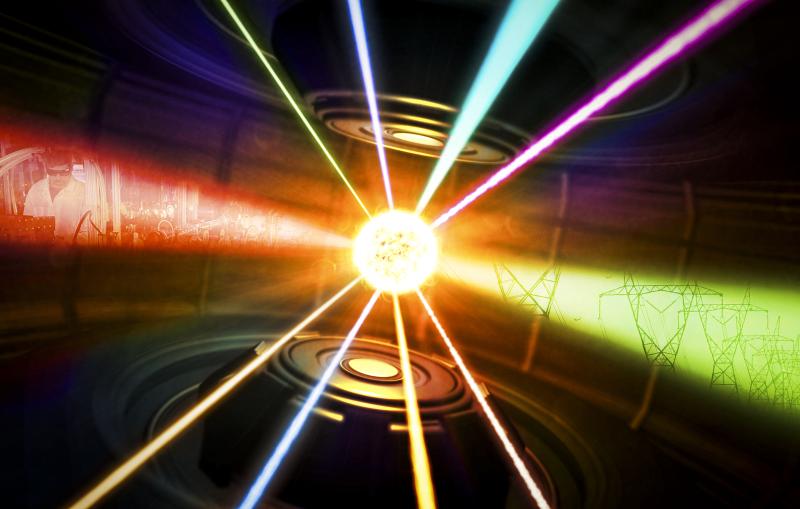In brief: New round of DOE awards bolsters quantum information science at SLAC
Two projects will look for ways to link individual quantum devices into networks for quantum computing and ultrasensitive detectors.
By Manuel Gnida
Researchers at the Department of Energy’s SLAC National Accelerator Laboratory have received two DOE awards to explore how quantum information can be passed from one quantum device to another. The goal: develop ways to link quantum devices into quantum computing networks that are much more powerful than today’s technology and into innovative photon detectors that could open up new areas of research, such as novel searches for dark matter.
Current research is often focused on how to build individual quantum devices, including qubits – the basic units of quantum information – and quantum sensors. However, putting them together into larger, more powerful detectors or computing architectures remains a largely unaddressed challenge. The SLAC projects will search for ways to connect very different quantum devices – for instance, a qubit and a piece of memory – and make the transfer of quantum information between them highly efficient.

The funding, awarded by the DOE Office of Science program offices in High Energy Physics and Advanced Scientific Computing Research, will provide over $2 million in total funding over two to four years for projects led by SLAC scientists Emilio Nanni, Paul Welander and Tony Heinz in collaboration with Amir Safavi-Naeini, Jelena Vuckovic and Martin Fejer at Stanford University. In previous funding rounds, the lab garnered DOE support for four projects in quantum sensor development, quantum simulations and chemistry.
Related information:
- Q&A: SLAC/Stanford researchers prepare for a new quantum revolution
- Quantum Information Science at SLAC
- Q-Farm Stanford-SLAC Quantum Initiative
Contact
For questions or comments, contact the SLAC Office of Communications at communications@slac.stanford.edu.
SLAC is a vibrant multiprogram laboratory that explores how the universe works at the biggest, smallest and fastest scales and invents powerful tools used by scientists around the globe. With research spanning particle physics, astrophysics and cosmology, materials, chemistry, bio- and energy sciences and scientific computing, we help solve real-world problems and advance the interests of the nation.
SLAC is operated by Stanford University for the U.S. Department of Energy’s Office of Science. The Office of Science is the single largest supporter of basic research in the physical sciences in the United States and is working to address some of the most pressing challenges of our time. For more information, visit energy.gov/science.





